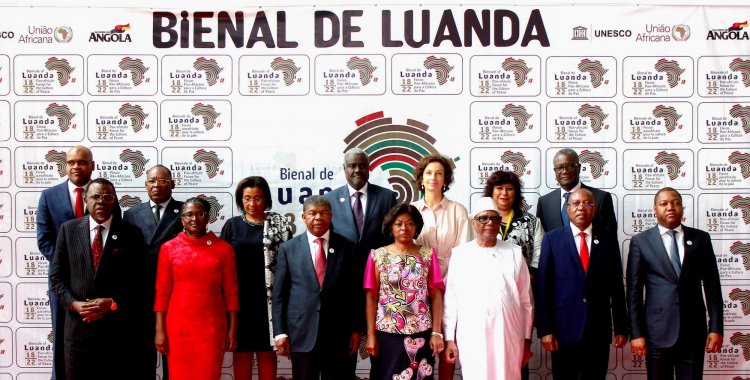The result of a partnership between the African Union (AU), the United Nations Educational, Scientific and Cultural Organization (UNESCO) and the Government of Angola, the Luanda Biennial 2021 aims to "promote the contribution of the arts, of culture and heritage for lasting peace".
The involvement of young people as "actors of social transformation for the prevention of conflicts", Africa and its diasporas in the face of conflicts, crises and inequalities and exploring the potential of the oceans for sustainable development and peace, complete the objectives of the Bienal, according to the press release from the event's National Management Committee Coordination.
The contingencies dictated by the covid-19 pandemic force the Bienal to take place in a hybrid way: face-to-face and virtual.
In this sense, a technological platform was developed that will allow the transmission in real time, both from Luanda and abroad, as well as from other African countries that will also share the events held locally, with simultaneous translation in the three defined working languages: Portuguese, English and French and, in the Angolan case, for the country's press, in the national languages.
Under the central theme "Art, Culture, Heritage: Levers for the Africa we Want", the Bienal will have "spaces for reflection, exhibition and dissemination of artistic creations, good practices, ideas and knowledge related to the culture of peace", as per the press release.
Moussa Faki Mahamat, president of the African Union Commission, in a statement regarding the event, highlighted the importance of "extending the event to other important peace actors in favor of greater cohesion and efficiency" in this second edition of the Bienal.
The Chairperson of the AU Commission also underlined, "the strong mobilization and participation of the African Diaspora, formalized with its registration in the Bienal Partner Alliance".
Also in a statement alluding to the event, Firmim Edouard Matoko, deputy director-general of UNESCO for Africa and External Relations, considered that the Luanda Biennial is an opportunity to prevent violence and conflicts and consolidate peace in favor of a sustainable and inclusive development.
In this regard, Edouard Matoko said he believes that the Bienal meets the objectives of the Operational Strategy for UNESCO's Priority for Africa, for the period 2014-2021, which identifies the "construction of Africa in the creation of inclusive, peaceful and resilient societies".
Carolina Cerqueira, Minister of State for the Social Area, defended in her statement that the Bienal, when addressing young people, "affirms itself as a space for intergenerational dialogue based on cultural diversity".
"The Luanda Biennial is a global platform for understanding in favor of intergenerational solidarity, cooperation and tolerance in Africa and its diaspora," she said.
The Bienal's program is based on three axes: Intergenerational Dialogue between Leaders and Youth; Festival of Cultures and Launch of the Partners Alliance for a Culture of Peace.
Portuguese President Marcelo Rebelo de Sousa is scheduled to travel to Luanda to participate in the Luanda Biennial.
Bienal presents Luanda as the African capital of Arts, Culture and Heritage
Art, Culture and Heritage as instruments of Africa that Africans want, are the pretext for the capital to host, between the 27th and 30th of this month, the second edition of the Luanda Biennial.







